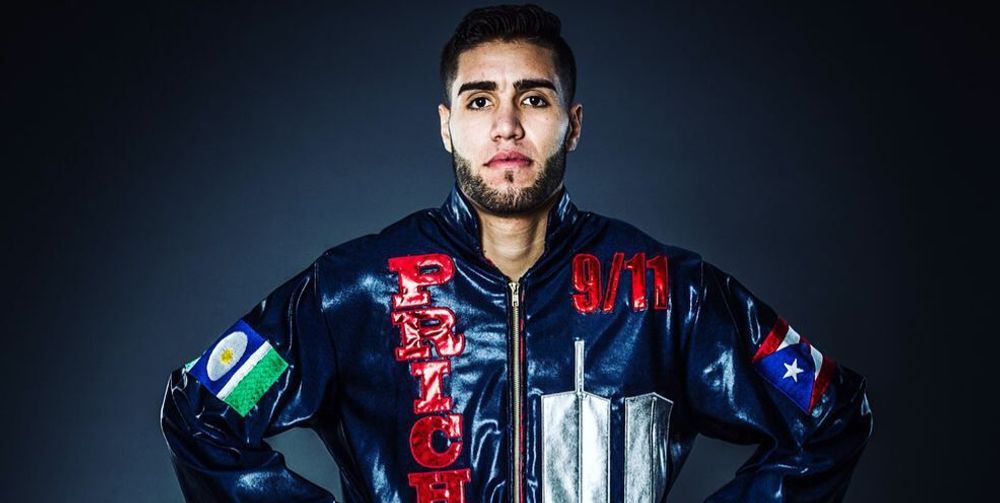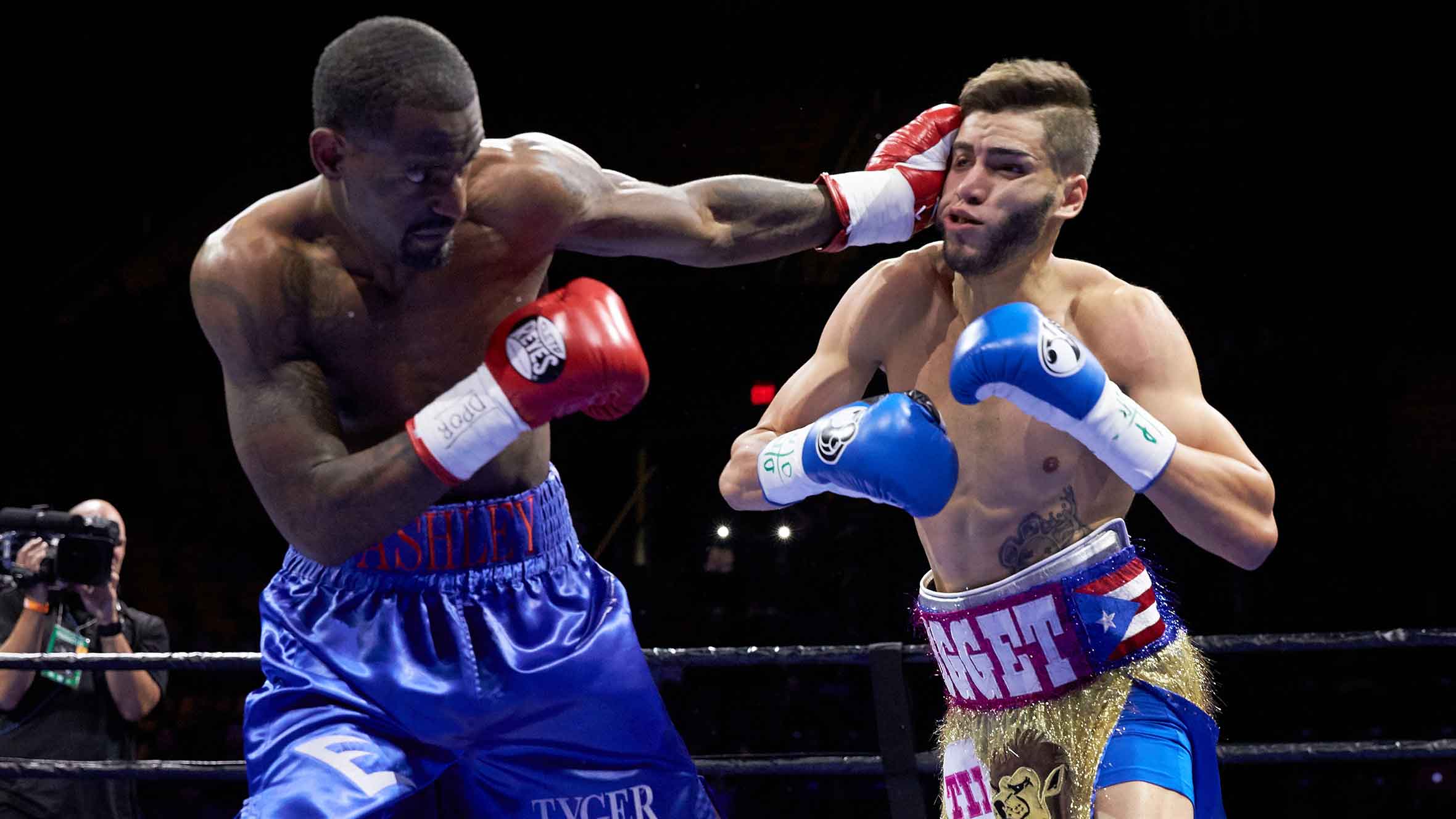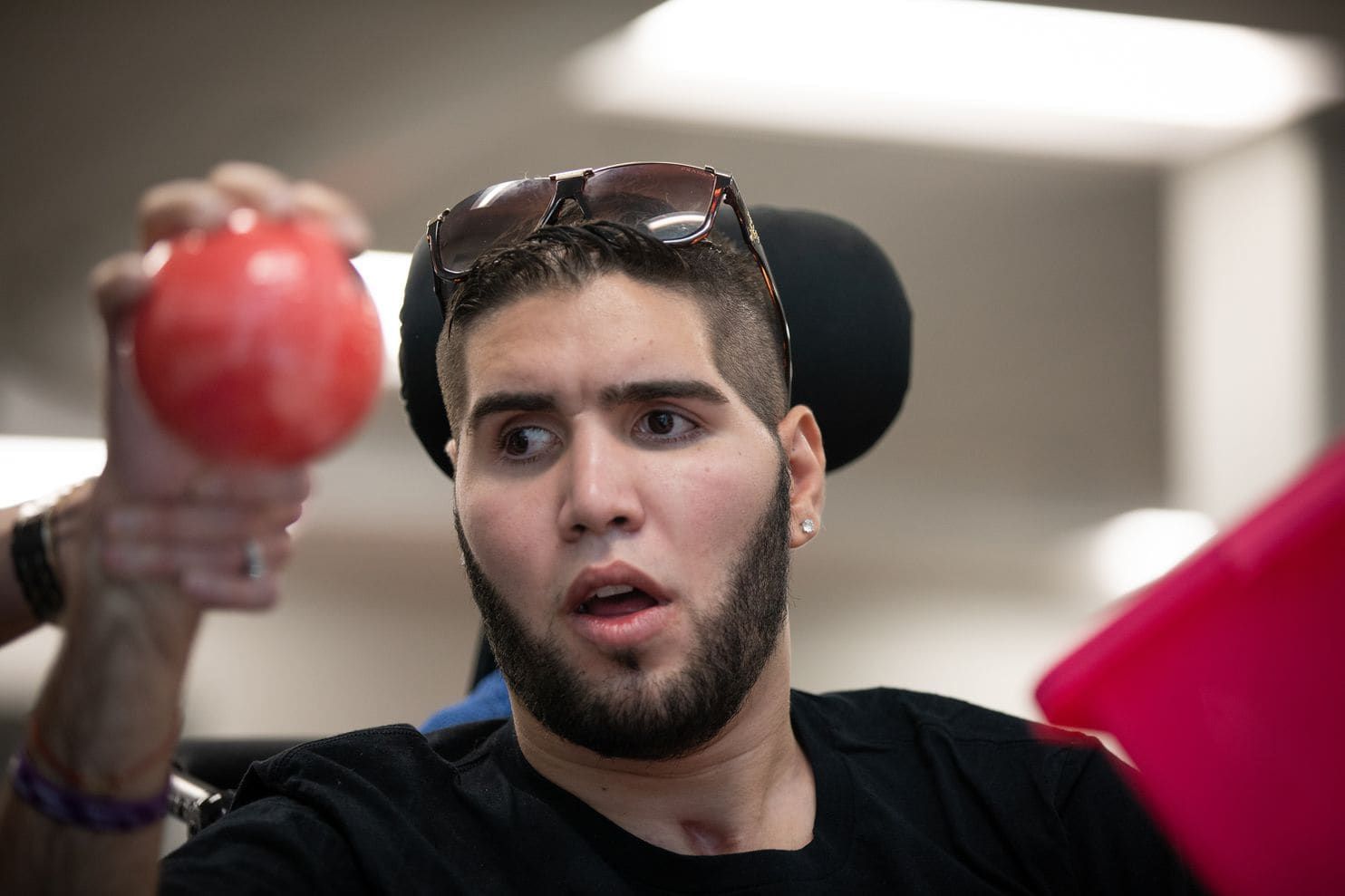Prichard Colon: The Boxer, His Story, And What Happened Next
Who is Prichard Colon?
Is there a starker reminder of boxing's inherent risks than the story of a promising career cut short? Prichard Colon stands as a poignant example, a Puerto Rican former professional boxer whose trajectory, once pointed towards greatness, was tragically altered. He competed with fervor and skill from 2012 to 2015, earning the title of former WBO junior welterweight champion and WBC interim welterweight champion.
Colon's journey began in Fajardo, Puerto Rico, where he was born on September 19, 1992. His introduction to boxing at the age of 12 ignited a passion that quickly propelled him through the amateur ranks. By 2010, his talent was undeniable, culminating in a victory at the Puerto Rican national championship in the light welterweight division. The following year, he secured a gold medal at the Pan American Games in Guadalajara, Mexico, solidifying his status as a rising star.
- Frances Bean Cobain Legacy Of Courtney Love And Kurt Cobain
- Untold Story Lil Waynes Childhood And Rise To Fame
| Name | Prichard Colon |
|---|---|
| Birth Date | September 19, 1992 |
| Birth Place | Fajardo, Puerto Rico |
| Nationality | Puerto Rican |
| Height | 5'9" (175 cm) |
| Weight | 140 lbs (63 kg) |
| Division | Welterweight |
| Record | 16-1-1 (13 KOs) |
| External link | BoxRec Profile |
The transition to professional boxing in 2012 proved seamless for Colon, as he swiftly established himself as a force to be reckoned with. His first 16 fights showcased his prowess, marked by victories over seasoned former world champions like Paulie Malignaggi and Kermit Cintron. A defining moment arrived in 2015 when he triumphed over Danny Garcia, seizing the WBO junior welterweight championship.
However, the narrative took a devastating turn in 2015. A bout against Terrel Williams resulted in a brain injury that abruptly halted Colon's ascent. The fight, held in Fairfax, Virginia, ultimately altered the course of his life. While Colon's physical strength and boxing technique were evident, the events of that day underscored the fragility inherent in the sport.
The immediate aftermath of the injury was harrowing. Colon was rushed to a hospital, where he underwent emergency surgery to relieve pressure on his brain. The initial prognosis was grim, and he remained in a coma for an extended period. The boxing world, along with his family and fans, held its collective breath, hoping for a miracle.
- All American The Truth About Who Is Spencer Jamess Real Dad Exposed
- Gal Gadot From Miss Israel To Wonder Woman Beyond
While Colon emerged from the coma, the consequences of the brain injury were profound and permanent. He faced significant cognitive and physical challenges, requiring extensive rehabilitation. His ability to communicate and move was severely impaired, marking a stark contrast to the athleticism and agility he displayed in the ring.
The circumstances surrounding the fight against Williams came under intense scrutiny. Questions were raised about the referee's handling of the bout, as well as the ringside physician's assessment of Colon's condition. Some observers argued that the fight should have been stopped earlier, potentially mitigating the severity of the injury.
In the wake of the tragedy, calls for enhanced safety measures in boxing grew louder. Neurological examinations, stricter regulations, and improved referee training were among the proposals aimed at protecting fighters from similar fates. The incident served as a harsh reminder of the potential for catastrophic consequences in a sport predicated on physical combat.
Despite the immense challenges he faced, Colon's spirit remained unbroken. He embarked on a long and arduous journey of rehabilitation, displaying remarkable resilience and determination. While his progress was gradual, his unwavering commitment to recovery inspired countless individuals.
The story of Prichard Colon transcended the realm of sports, becoming a symbol of courage and perseverance. His plight resonated with individuals grappling with their own personal battles, serving as a testament to the human capacity for hope in the face of overwhelming adversity. His family, especially his mother, has been a pillar of support throughout his recovery journey, demonstrating unwavering love and dedication.
The boxing community rallied around Colon, organizing fundraisers and offering support to his family. Fellow fighters, promoters, and fans expressed their solidarity, underscoring the bonds that unite individuals within the sport. The outpouring of compassion reflected a collective recognition of the shared risks inherent in boxing.
The long-term impact of Colon's injury extended beyond his personal life, prompting a broader conversation about the ethics and responsibilities within the boxing industry. The need for greater oversight, independent medical evaluations, and comprehensive insurance coverage for fighters became increasingly apparent. The goal was to create a safer and more equitable environment for those who risk their health for the sake of the sport.
The legacy of Prichard Colon is multifaceted. He is remembered not only for his accomplishments in the ring but also for his unwavering spirit and the profound impact he has had on the boxing world. His story serves as a cautionary tale, a reminder of the inherent dangers of combat sports, and a call for continuous improvement in safety protocols.
The challenges faced by Colon extend beyond the physical realm, encompassing emotional and psychological dimensions as well. Adapting to a life drastically different from the one he envisioned requires immense mental fortitude. The support of family, friends, and therapists plays a crucial role in his ongoing journey of healing and self-discovery.
The legal ramifications of the incident have been complex and protracted. Lawsuits have been filed, seeking to hold responsible parties accountable for the alleged negligence that contributed to Colon's injury. These legal proceedings underscore the complexities of assigning blame and determining liability in the context of sports-related injuries.
Colon's story has also raised awareness about the importance of brain injury prevention and research. Organizations dedicated to studying and treating traumatic brain injuries have gained increased visibility, advocating for improved diagnostic tools, rehabilitation strategies, and protective measures. The ultimate aim is to reduce the incidence and severity of brain injuries across all sectors of society.
The economic consequences of Colon's injury have been significant, placing a substantial burden on his family. Medical expenses, rehabilitation costs, and lost income have created financial hardships, highlighting the need for comprehensive support systems for athletes who sustain career-ending injuries. The establishment of trust funds and charitable initiatives can provide crucial assistance during times of crisis.
The global reach of Colon's story has transcended geographical boundaries, resonating with individuals from diverse cultural backgrounds. His message of hope, resilience, and unwavering determination has inspired people around the world to overcome their own personal challenges. The universality of the human spirit shines through in his example, demonstrating that even in the face of unimaginable adversity, it is possible to find strength and meaning.
The ongoing narrative of Prichard Colon serves as a powerful reminder of the interconnectedness of sports, health, and society. His story has prompted reflection on the values we prioritize, the responsibilities we bear, and the importance of protecting those who pursue their dreams in the face of risk. His legacy will endure as a symbol of courage, resilience, and the enduring power of the human spirit.
Colon's influence extends to discussions about ethical conduct in sports. The actions of referees, ringside physicians, and trainers are now more closely scrutinized, with an emphasis on prioritizing the well-being of athletes above all else. The incident involving Colon has served as a catalyst for promoting a culture of safety and accountability within the boxing community.
The story of Prichard Colon also underscores the need for comprehensive mental health support for athletes. The pressure to perform, the fear of injury, and the challenges of transitioning out of professional sports can take a toll on mental well-being. Providing access to therapists, counselors, and support groups can help athletes navigate these challenges and maintain their overall health.
Colon's experiences have highlighted the disparities in access to quality healthcare. Athletes from underserved communities may face barriers to receiving timely and effective medical treatment, exacerbating the consequences of injuries. Addressing these disparities is essential to ensuring that all athletes have the opportunity to pursue their dreams safely and with adequate support.
The narrative of Colon also underscores the significance of long-term care and rehabilitation for individuals with brain injuries. The road to recovery can be arduous and require ongoing medical, therapeutic, and social support. Investing in comprehensive rehabilitation programs is crucial for maximizing the potential for recovery and improving the quality of life for those affected by brain injuries.
Colon's enduring legacy lies in his ability to inspire hope and resilience in others. His story demonstrates that even in the face of unimaginable challenges, it is possible to find strength, meaning, and purpose. His unwavering spirit serves as a reminder that the human capacity for perseverance is boundless, and that even in the darkest of times, there is always light to be found.
Prichard Colon's journey is a stark reminder that boxing, while a sport of skill and strategy, carries inherent dangers. His story has resonated far beyond the ring, sparking conversations about safety, responsibility, and the indomitable human spirit. While his career was tragically cut short, his impact on the sport and the lives he has touched will endure.
In the face of adversity, Prichard has become a beacon of hope, resilience, and strength. His experience has become a call to action for boxing and other contact sports to prioritize safety and provide better support for athletes. The incident serves as a reminder that it is important to address the problems, that can save future of sportsman. With the right steps, sport can become safer and more respectful of those who play.
- All About Traci Braxtons Son The Rising Star
- Unveiling The Truth Nathan Fillions Daughter No Heres Why

How is Prichard Colon doing in 2022? The former Pro boxer has made

What Happened To Prichard Colón? Former Boxer Sues After Doctor's

16 Surprising Facts About Prichard Colon